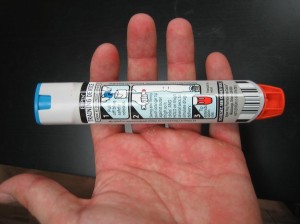Sulfites are preservatives utilized to prevent discoloration in foods and beverages. These are commonly found in wine, beer, dried fruit, pickled foods and some medications. It is estimated that roughly only 1% of individuals develop sulfite sensitivity if constantly exposed. Take note that this can occur at any age and the reasons are not yet clearly known. In addition, all food manufacturers are required to list down sulfites on the labels.
What are the causes and symptoms?
Most cases of reactions typically occur after inhaling sulfur dioxide which is produced by sulfites while eating. In one study, the chance for a reaction to occur depends on the level of sulfites present, sensitivity level and the type of food.
This typically triggers asthma symptoms such as shortness of breath and wheezing. Some individuals can develop a skin rash or urticaria or even gastrointestinal symptoms such as nausea, vomiting or diarrhea, it indicates a life-threatening reaction or anaphylaxis. In case the throat swells along with breathing difficulty, weak rapid pulse rate and an abrupt drop in the blood pressure, seek immediate medical care.
Testing and diagnosis

Once an individual is suspected with sulfite sensitivity, a doctor should be consulted and describe the symptoms. The allergy is usually confirmed via a challenge procedure. The individual is given small but gradually increasing dosage of sulfite at 20 or 30 minute intervals.
The doctor will closely monitor the individual for indications of an asthmatic reaction. Once this occurs, the lung function measures and the individual can be given a bronchodilator to manage the symptoms. The process typically takes between 2-2 ½ hours.
Treatment
The doctor will prescribe a bronchodilator to help manage the symptoms. Oral antihistamines are given to provide relief to other symptoms which includes hives or itchiness. If an individual is at risk for anaphylaxis, he/she is prescribed with an auto-injector epinephrine. This device should be on hand at all times and a shot should be administered at the initial sign of a serious reaction. Make sure that family members and friends know how to use the device. After a shot is given, bring the individual to the nearest emergency department.
What are the foods that contain sulfites?
The ideal way to prevent an allergic reaction is to avoid all foods and beverages that contain sulfites. Sulfites are not allowed to be used in fruit and vegetables that are eaten raw, but can be used in dried fruit, canned foods, juices and jams. In some cases, they are also utilized in potato chips, soup mixes, fresh or frozen shrimp, some condiments and pickled foods. In addition, sulfites are also present in alcoholic beverages such as wine and beer.
Always read the labels carefully and take note that sulfites include potassium bisulfite, sulfur dioxide, potassium metabisulfite, sodium metabisulfite, sodium bisulfite and sodium sulfite.
